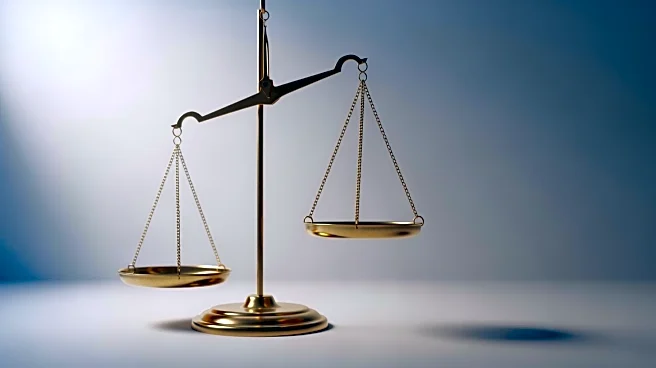What's Happening?
France's political instability has eased somewhat following recent events, but budgetary challenges remain unresolved. The government is still in the minority and faces difficulties in passing legislation. Parliamentarians have 70 days to debate, amend,
and vote on the budget, but a parliamentary agreement seems difficult due to the need for both chambers to agree. Options for passing the budget include invoking Article 49.3 of the Constitution, enforcing the budget by ordinance, or extending the 2025 budget into 2026. The Socialist Party has indicated it will not file a censure motion, reducing the immediate risk of government collapse.
Why It's Important?
The easing of political instability in France provides some relief, but the unresolved budgetary challenges continue to pose significant risks. The government's inability to pass a budget could lead to renewed political instability and affect France's fiscal recovery efforts. The situation highlights the need for political consensus and structural reforms to address the country's budgetary challenges and maintain stability. The outcome of the budgetary debates will have implications for France's economic policy and its role within the EU.
What's Next?
The government must navigate the budgetary challenges and find a way to pass the budget without resorting to controversial measures. The outcome of the budgetary debates will be crucial in determining the future political and economic landscape of France. The government may need to engage in further negotiations and compromises to achieve a parliamentary agreement.
Beyond the Headlines
The budgetary challenges in France reflect broader issues of fiscal policy and governance within the EU. The situation underscores the need for structural reforms and political consensus to address these challenges and maintain stability within the union.
















